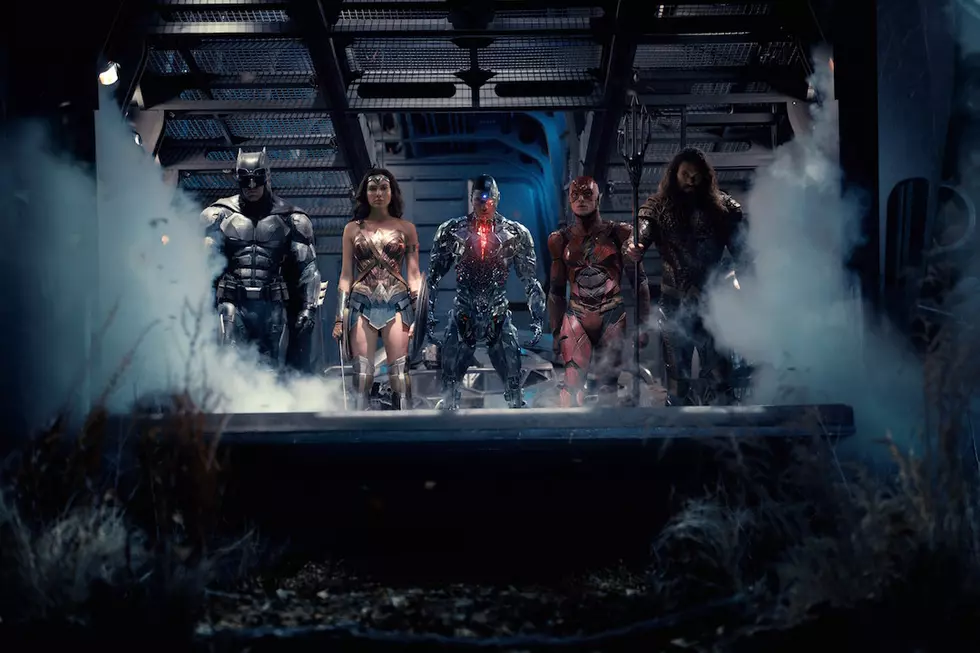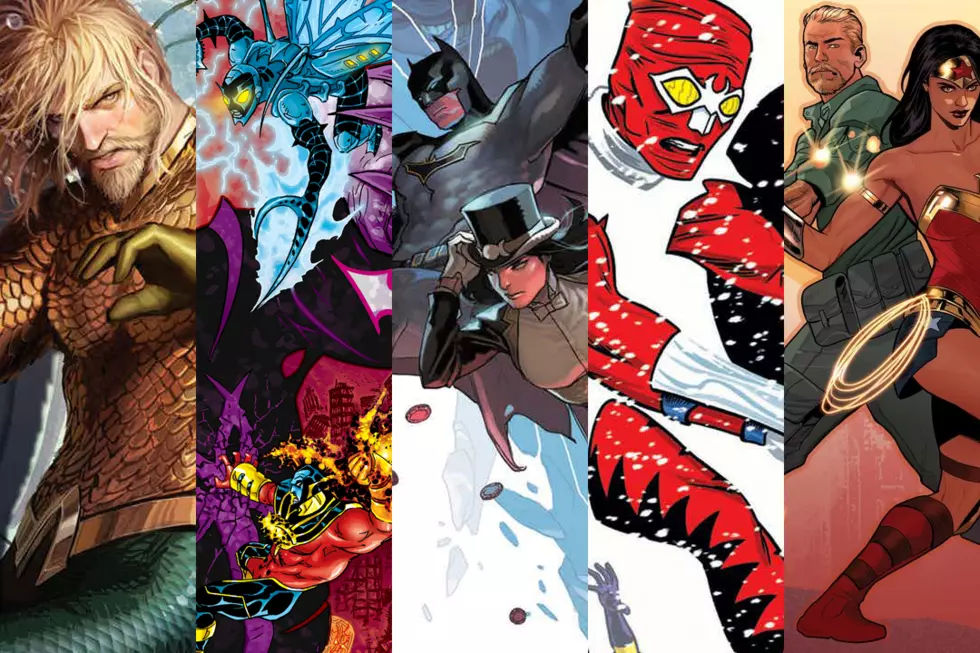
Bizarro Back Issues: Aqualad Doesn’t Know How Movies Work (1961)
The Academy Awards are almost upon us, which means that it's time for the entire movie industry to rent out a very large room and say, "Good job, Movie Industry" to itself for about four hours. I'm told a lot of people find this very exciting, but as they have never, to my knowledge, even mentioned Bulbasaur's groundbreaking role in Pokemon: The First Movie, it's not really something I'm interested in. Besides, the movies that I tend to enjoy often value spectacle over substance. It might not win any awards, but I've often thought that there's a lot of value in giving audiences something that they just couldn't see otherwise.
Which, I imagine, is probably there were film producers in the DC Universe who were once so desperate for cool stunts that they decided to hire an actual superhero to handle them --- all without ever explaining to him how movies worked.
It happened back in 1961, when Jack Miller and Sheldon Moldoff hit the pages of Detective Comics #297 with "Aqualad, Stand In For A Star." And while it might be a short story, it's definitely one that raises what I think is a pretty interesting question about how pop culture works in the DC Universe: What the heck do movies look like when superheroes exist?
Don't get me wrong, I'm not saying that there's no need for storytelling just because there are a few people out there who can pick up firetrucks, but I do think that it makes creating a cinematic spectacle a little more difficult. When you can walk outside on any given day and see an actual alien carving inspirational messages into the moon with his heat vision, then suddenly a trip down to the local movie theater seems a little less necessary.
So in that respect, you can see why the producers behind The Adventures of Sea-Boy wanted to capture some of those impressive stunts and put them on film for a worldwide audience. As to why they made up "Sea-Boy" when there was an actual real-life kid swimming around fighting pirates named Aqualad, and why they didn't just make a documentary about him when they planned on hiring him to work on the movie anyway, those are questions that this story never bothers to answer.
Nor does it really bother to answer why they seem to have hired him without ever actually discussing it with Aqualad himself.
Instead, this story takes the very strange position that Aquaman handles all of Aqualad's business affairs. That in itself isn't too terribly weird --- Aqualad's a minor, after all, so it's not like he can sign contracts or whatever --- but apparently Aquaman negotiated his youthful sidekick's appearance in a Hollywood film without ever once mentioning it to him. But, with apologies to podcaster Tom Katers, who made a pretty brilliant recurring gag out of this joke, I guess you do what you have to do to help out all the old seamen.
Point being, not only does Aqualad not seem to know that he's in a movie, he doesn't really seem to know how movies work --- and neither do the people who make them.
Shout out to the director there for explaining suspension of disbelief in the middle of a comic about Aquaman.
Anyway, this is the pattern that the story falls into for the majority of its five and a half pages: Aqualad is called upon to do some reasonably impressive but scientifically dubious "water stunt," like springboarding off an octopus and onto the deck of a pirate ship, or lassoing up some monstrous sharks while riding cowboy-style on a whale, and then immediately starts to get grumpy about the fact that Teen Actor Barry Blaine shows up to "take all the credit."
In other words, he is just furiously angry that an actor... is acting.
Now look: I realize that this is 1961, and we're still two decades away from Lee Majors and his sonorous voice explaining the concept of stuntmen in the theme song to The Fall Guy, but still, the idea that Aqualad is having this much trouble grasping the very concept of fiction doesn't really do much to recommend his character. Like, Aquaman even tries to explain it to him, and he's having none of it.
Eventually, it gets to be so much that Aqualad decides that he's going to bail on the entire operation. Unfortunately, as soon as he jumps off of the boat to swim away, he finds himself caught in a net and in immediate danger of being blown up by a mine that has apparently drifted onto the watery set of Sea-Boy.
Seriously: It happens that quickly.
Needless to say, Hollywood Actor Barry Blaine sees all this and steps up to help out. I think this is meant to be a change, the moment that Aqualad --- and, by extension, we in the audience --- realize that maybe Barry's not such a bad guy after all. The thing is, we have no reason to think that he was ever a bad guy to begin with. Aqualad's been inexplicably mad at him for the duration of the story, but except for one panel where he complains about the "unpleasant odor" of the makeup, Barry's just been hanging out doing his actual job for the entire time. And really? Referring to something as "unpleasant" isn't exactly going full diva on everyone. It's the most mild complaint you can have.
The only major flaw that Barry has is that he can't swim, and while I don't think that's a good reason to be mad at somebody, I will concede that in a comic about Aquaman, it's probably a pretty unforgivable sin.
Regardless, he tries to help, and even though it's in the most ineffective way possible, it's the thought that counts:
Of course, Aqualad isn't actually blown up in a tragic maritime filmmaking accident along with promising young actor Barry Blaine. Instead, Barry's dog-paddling keeps the mine away just long enough for Aquaman to make the save, and the two lads become the best of friends.
I'm not sure Aqualad ever figures out what fiction is, though.
More From ComicsAlliance









